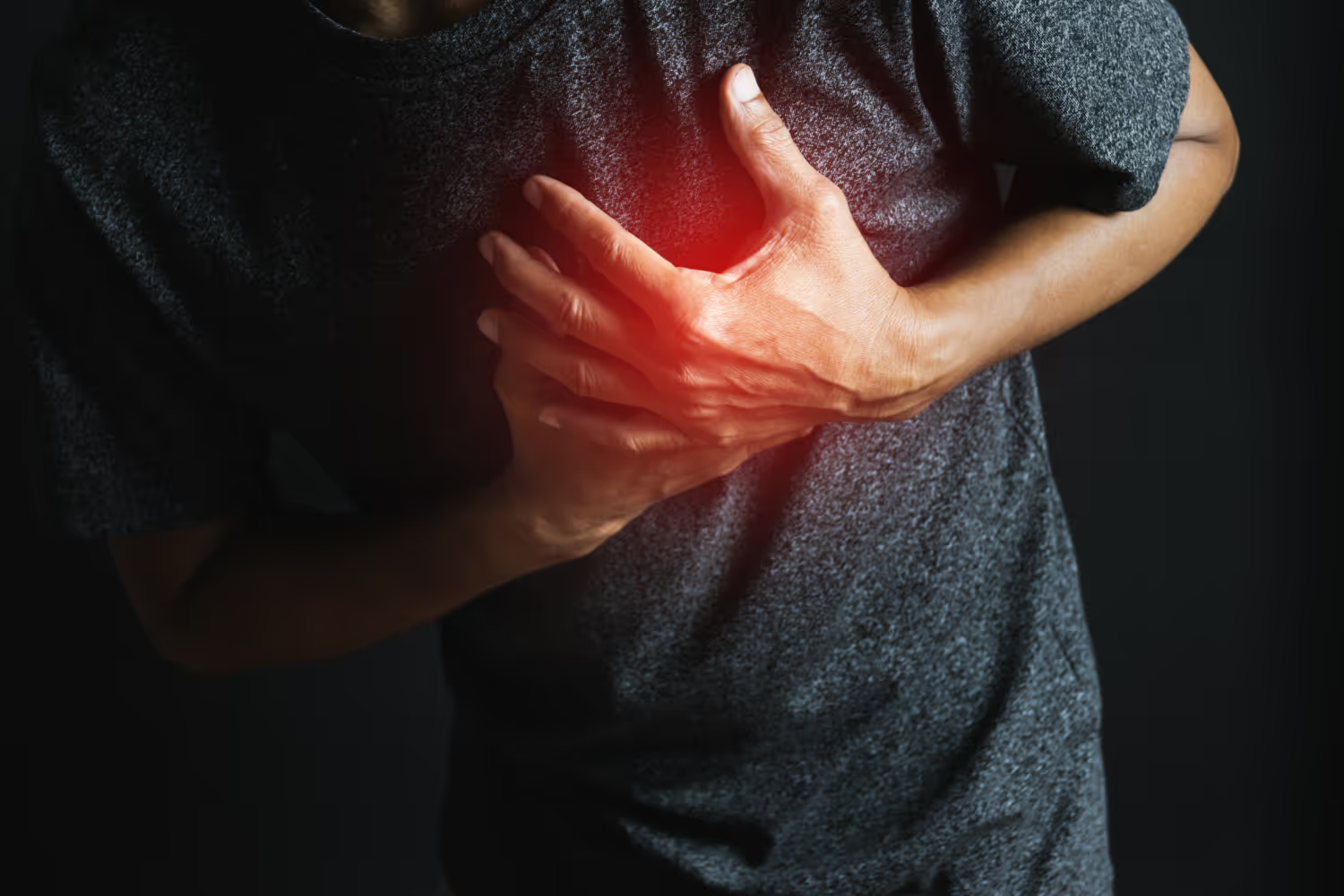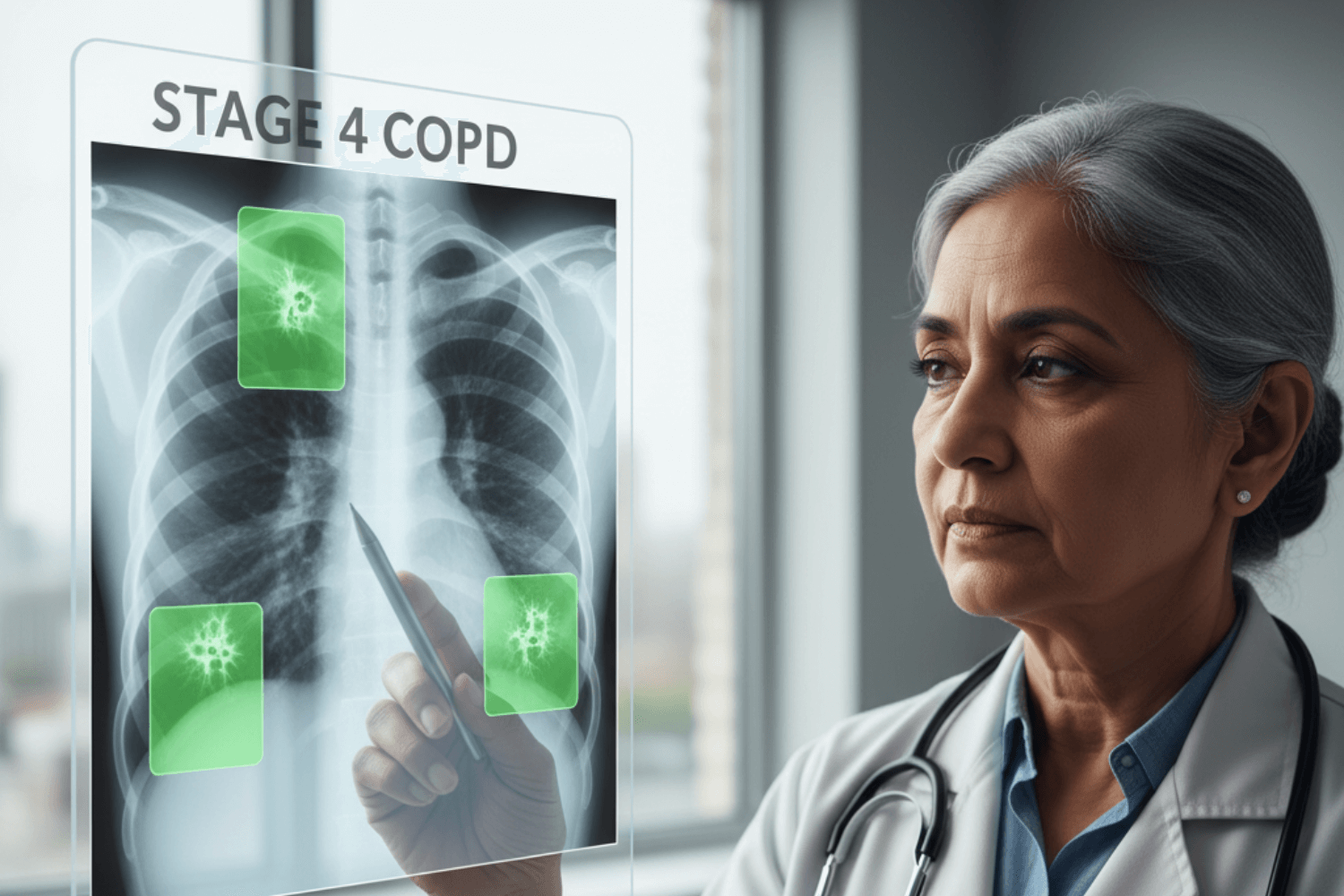
Having heart palpitations at night can feel scary, but most of the time, they are not cause for concern. What are heart palpitations, and what causes them to present at night?
Carda is here to talk about potential causes of heart palpitations at night, as well as treatment options. You’ll also learn how to tell whether heart palpitations are a medical emergency or not.
Read on to support your cardiovascular health and wellness with Carda.
What Are Heart Palpitations?
Heart palpitations occur when your heart beats out of rhythm for a brief moment. A palpitation can feel like a rapid increase in heart rate. It could also feel like your heart racing, fluttering, or pounding. Sometimes a palpitation feels like your heart skips a beat, too.
Usually, people don't pay attention to their heartbeat or heart rate, but since a palpitation presents with a srange lapse or overcompensation in a heartbeat, people often notice their heart rate more with heart palpitations.
What Causes Heart Palpitations at Night?
Heart palpitations that present at night are usually due to lifestyle choices or factors rather than heart disease or other health conditions.
Common causes of heart palpitations at night include alcohol or caffeine intake, stress, hormonal shifts, and dehydration. Let's take a look at each of these common causes below.
Alcohol or Caffeine Intake
Alcohol can cause your heart rate to momentarily elevate, even when your body is at rest. Consuming even one drink can increase your heart rate by five beats per minute for the next six hours.
Caffeine can also cause heart palpitations at night, especially if you consume caffeine in the afternoon or evening. As a stimulant, caffeine enters your bloodstream and stimulates your central nervous system. When your central nervous system activates due to caffeine, it signals your body to increase blood flow and can also send signals to increase your heart rate.
Additionally, both alcohol and caffeine are diuretics, which means that they can cause you to urinate more frequently. As such, these beverages are dehydrating, which can further contribute to heart palpitations.
Stress
Exposure to stress can cause heart palpitations to present. With stress, the body's fight or flight response kicks in, and the nervous system releases hormones that can elevate your heart rate.
Experiencing a rapid heartbeat, or a beat out of rhythm, due to stress is a normal response from the body and is a defense mechanism. Your body is trying to protect you from what it perceives as a threat (the trigger for your stress), and in the process, your nervous system closely interacts with your circulatory system. The interaction and release of chemicals from your nervous system can, in turn, cause your heart rate to change.
Hormonal Shifts
Changes in hormone levels can lead to heart palpitations, especially in women. Women who are going through menopause often experience heart palpitations alongside hot flashes.
Palpitations during menopause correspond with changing estrogen levels since they often rise and fall throughout menopause until the body eventually no longer produces estrogen.
Because estrogen levels also cycle and change a lot during a woman's menstrual cycle and pregnancy, they might also experience heart palpitations during these hormonal changes.
Dehydration
Without enough water or electrolytes in your system to properly nourish you, you may start to experience heart palpitations because your heart muscle has to work harder to circulate enough blood to the rest of your body.
Dehydration can also cause your electrolytes to become imbalanced. Electrolytes normally play a role in regulating your heartbeat, so when your electrolytes are out of balance and do not have an optimal concentration, they can affect your heart rhythm.
Are Heart Palpitations at Night Common?
Heart palpitations can happen at any time of the day, including during the night when you are resting. They are common, and most people will experience heart palpitations at some point during their life.
Many people experience heart palpitations at night but may not even notice them in their sleep. Alternatively, many people might experience heart palpitations throughout the day and night but might only notice them at night when they are lying down about to fall asleep. Lying down makes it easier to notice palpitations, compared to when they may be out and about engaging in tasks throughout the day that could make them not even notice their palpitations.
When Should I Consult My Doctor About Heart Palpitations?
Most of the time, night heart palpitations are due to lifestyle choices or factors. However, in rare cases, palpitations can indicate an underlying heart condition that requires medical attention.
If you experience heart palpitations that do not go away or that repeatedly show up without resolving, bring this up to your healthcare provider or cardiologist at your next visit. You should also consult your doctor if you start to get heart palpitations frequently when you lie down.
Heart palpitations that present alongside chest pain or shortness of breath are signs of a medical emergency, and you should go to the emergency room right away. They could indicate a heart attack, atrial fibrillation, or another heart condition.
Persistent heart palpitations could also indicate another underlying medical condition, such as a thyroid disorder, like an overactive thyroid (hyperthyroidism), tachycardia, anemia, or low blood sugar.
Your healthcare provider can order tests, such as an electrocardiogram and a stress test, to help rule out certain cardiac-related causes.
How Can I Ease Heart Palpitations?
There are several different strategies you can practice to ease heart palpitations, including stress management, limiting stimulants and minimizing alcohol, and addressing underlying causes. Let’s take a look at each of these techniques to ease heart palpitations below.
Practice Stress Management
Stress management helps promote your overall heart health and mental well-being and can help to decrease the number of heart palpitations you feel.
Your plan to help manage your stress is a unique set of goals that can look very different from someone else's. What is stressful to one person may not feel that way to another person, and similarly, what is relaxing and calming to one person might not feel that way for another person.
Making time for hobbies and activities you love can enhance your mental attitude. Engaging with people you enjoy spending time with can also boost your mental health and help you to manage your stress. Getting together with family or friends is a great way to maintain a support network as you cope with stress.
Additionally, keeping up with tasks that support your overall well-being and wellness, such as getting a good night's sleep, eating a healthy diet, and staying physically active, are all strong ways to manage your stress. Making time for relaxation techniques is important as well, such as engaging in deep breathing exercises.
Avoid Stimulants and Minimize Alcohol
Stimulants such as caffeine, energy drinks, or recreational drugs can cause strong heart palpitations and can make it harder to fall asleep at night in general, even if you consume them in the early afternoon sometimes.
Energy drinks have a very concentrated amount of caffeine. Other sugary beverages, such as soda, also contain caffeine in smaller amounts and may also have stimulant effects, such as heart palpitations.
When it comes to alcohol consumption, drinking in moderation is always best. By definition, moderate drinking is about one drink a day for women and up to two drinks a day for men. However, less is always better, and if you experience heart palpitations, try to limit your alcohol intake to only several drinks a week overall.

Address Underlying Causes
Heart palpitations often occur due to stimulant intake, stress, dehydration, or hormonal shifts. However, sometimes there can be another underlying cause, which is usually another heart problem or medical condition.
One underlying cause for heart palpitations is cardiomyopathy, a heart disease that makes it harder for the heart muscle to pump blood to the rest of the body. Heart arrhythmias (a heart rhythm problem that results in an irregular heartbeat) and heart valve disease are two other underlying causes that can influence heart palpitations.
Taking medication, engaging in physical activity, eating a heart-healthy diet, and following up regularly with your healthcare provider are all ways to address any underlying causes of heart palpitations. Additionally, participating in a cardiac rehabilitation program is a way to combine all of these strategies in one when it comes to managing your heart health.
A cardiac rehabilitation program offers routine meetings with a healthcare provider, as well as guidance and monitoring from an exercise physiologist, to promote education and engagement around heart health. Carda offers a fully virtual cardiac rehabilitation program so that you can experience your heart health journey from the comfort of your own home, on your own time.
All you need is a referral from your primary care provider, and then you can get started by filling out our simple online form. Carda will send you everything you need, including cardiac and vitals monitoring equipment, to make your heart health journey as easy as possible.
The Bottom Line
Heart palpitations are a cardiac occurrence during which your heartbeat is either too fast or too slow. While most heart flutters at nighttime are not a cause for concern, they can, in rare cases, signalize an underlying condition.
Most of the time, though, heart palpitations at night are due to lifestyle choices or factors, which you can address through stress management, avoiding stimulants and alcohol, and addressing the underlying causes.
Sources:
Effect of alcohol on blood pressure | NIH
Heart Palpitations: Symptoms, Causes & Treatment | Cleveland Clinic
Skipping a beat — the surprise of heart palpitations | Harvard Health







